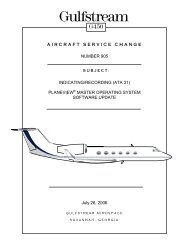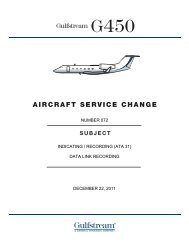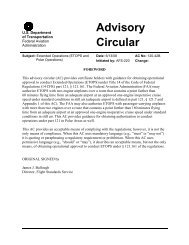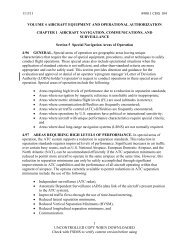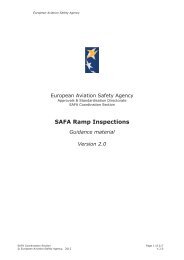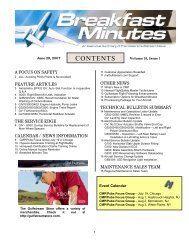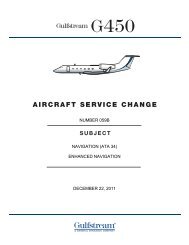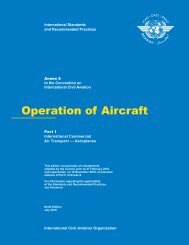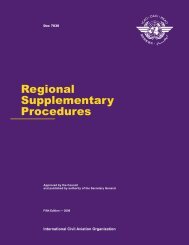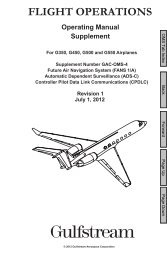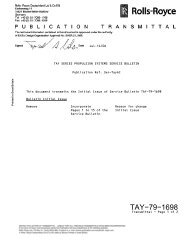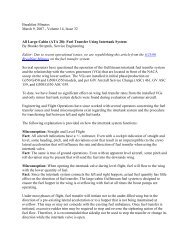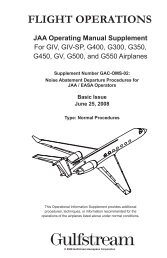AC 120-55C Air Carrier TCAS - Code7700
AC 120-55C Air Carrier TCAS - Code7700
AC 120-55C Air Carrier TCAS - Code7700
Create successful ePaper yourself
Turn your PDF publications into a flip-book with our unique Google optimized e-Paper software.
<strong>AC</strong> <strong>120</strong>-<strong>55C</strong> 2/23/11Appendix 7c. Descent RA. <strong>TCAS</strong> issues a descent RA when own aircraft is below 1,000 feet AGL;d. Altitude Excursion. There is an altitude excursion of more than 1,000 feet from anassigned level altitude;e. Turn Around RA. <strong>TCAS</strong> issues a turn around RA; orf. Coordinated Crossing RA. <strong>TCAS</strong> issues a coordinated crossing RA.22. Supplemental Type Certificate (STC). An FAA certificate attesting to the fact thatmodifications to the respective aircraft, engines, or other components meet 14 CFR airworthinessrequirements.23. Tau. Greek symbol representing the time to CPA.24. Threat. An intruder which has satisfied the threat detection criteria and thus requires an RA.25. Traffic. <strong>Air</strong>craft with an operating transponder capable of being tracked and displayed by a<strong>TCAS</strong>-equipped aircraft.26. Traffic Advisory (TA). Aural voice and display information provided by <strong>TCAS</strong> to aflightcrew, identifying the location of nearby traffic that meets certain minimum separationcriteria.27. Traffic Alert and Collision Avoidance System (<strong>TCAS</strong>). A family of airborne devicesmeeting specified TSO and RTCA/DO-185 requirements, current edition, which functionindependently of the ground-based ATC system to provide collision avoidance information.a. <strong>TCAS</strong> I. A <strong>TCAS</strong> providing only TAs to assist pilots in the visual acquisition of intrudertraffic.b. <strong>TCAS</strong> II. A <strong>TCAS</strong> which provides TAs and RAs in the vertical plane, such as climb ordescend.28. <strong>TCAS</strong> Academic Training (as applied herein). Part of ground training which exclusivelyaddresses acquiring the required <strong>TCAS</strong> concepts, systems, limitations, or procedures knowledge(rather than skills), and demonstration of that knowledge. <strong>TCAS</strong> academic training generally isaccomplished using a combination of classroom methods (standup instruction, slide/tapes,computer based instruction, tutorial, etc.), flight manual information bulletins, or self-study. Seeparagraph 9b for an expanded explanation of what should be taught.29. <strong>TCAS</strong> Event. For the purpose of this <strong>AC</strong>, one or more of the following occurrences orsituations are related to <strong>TCAS</strong>:a. <strong>TCAS</strong>, RA, or TA. Issuance of any <strong>TCAS</strong> RA or TA as specified by a flightcrew,regardless of whether it is valid, unwarranted, or a nuisance;Page 4



